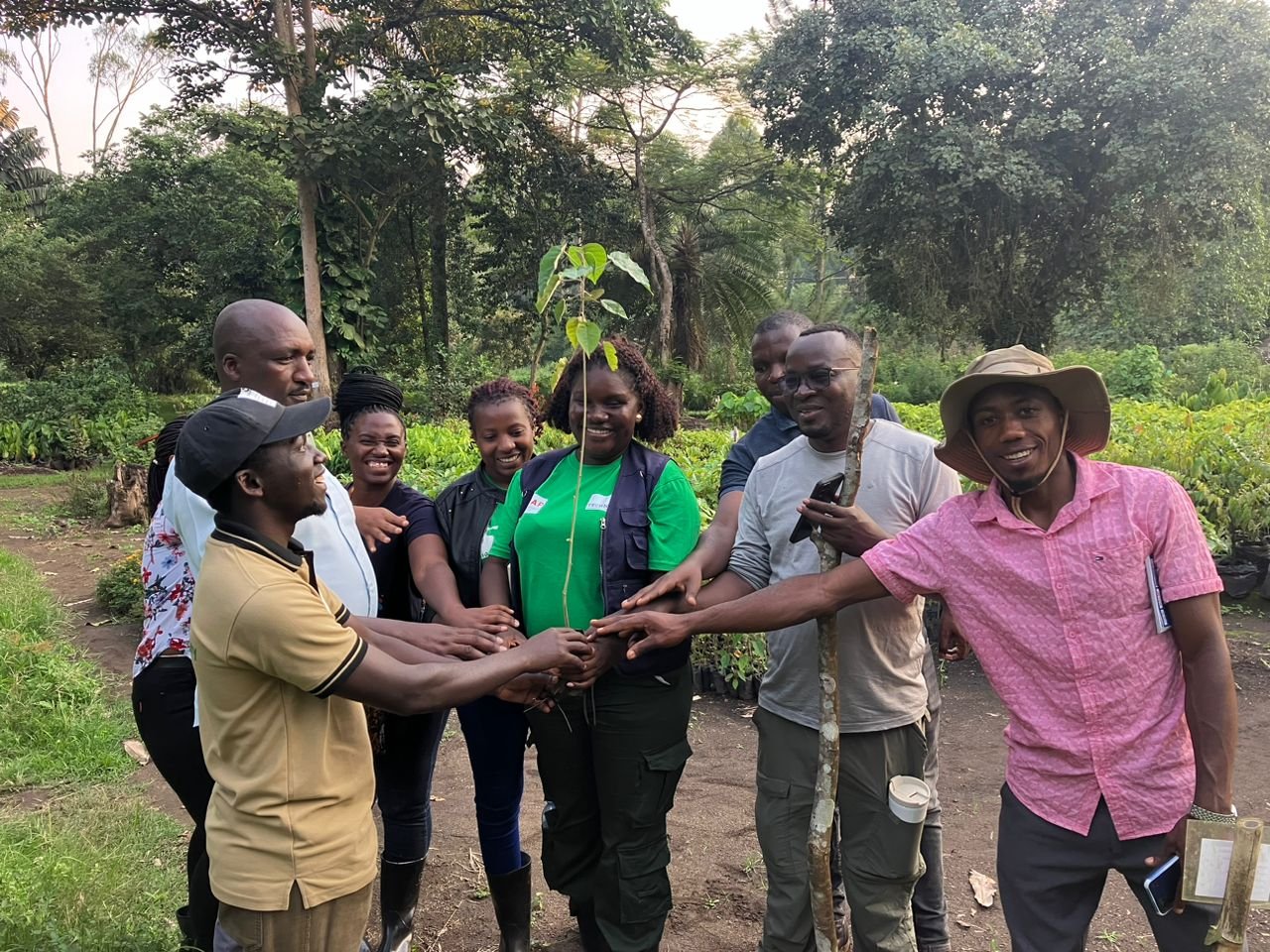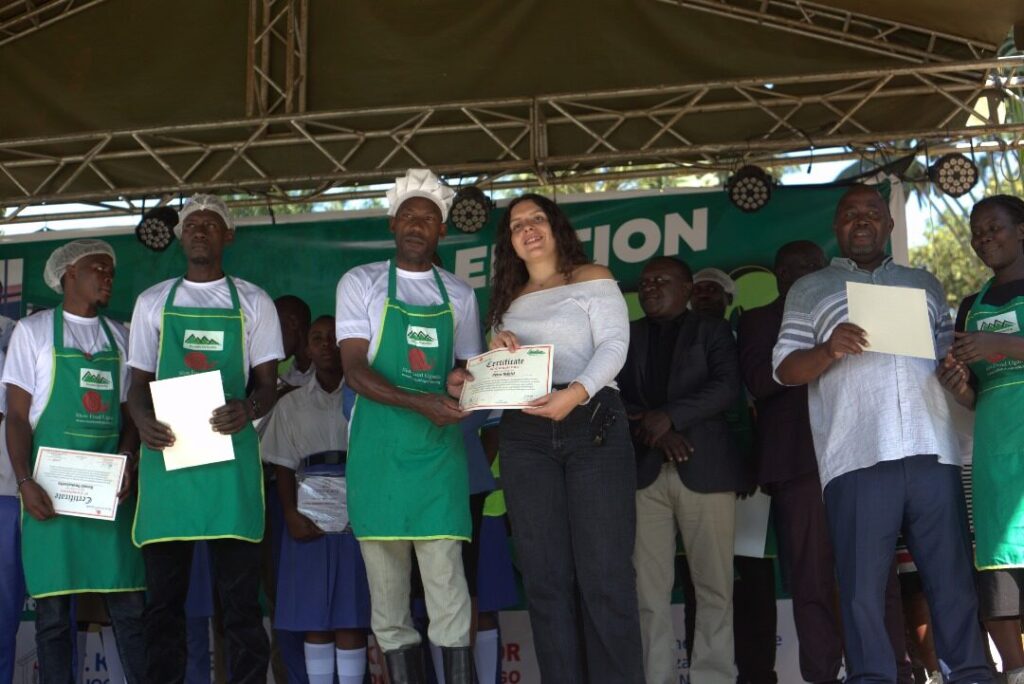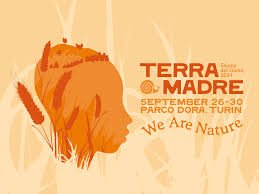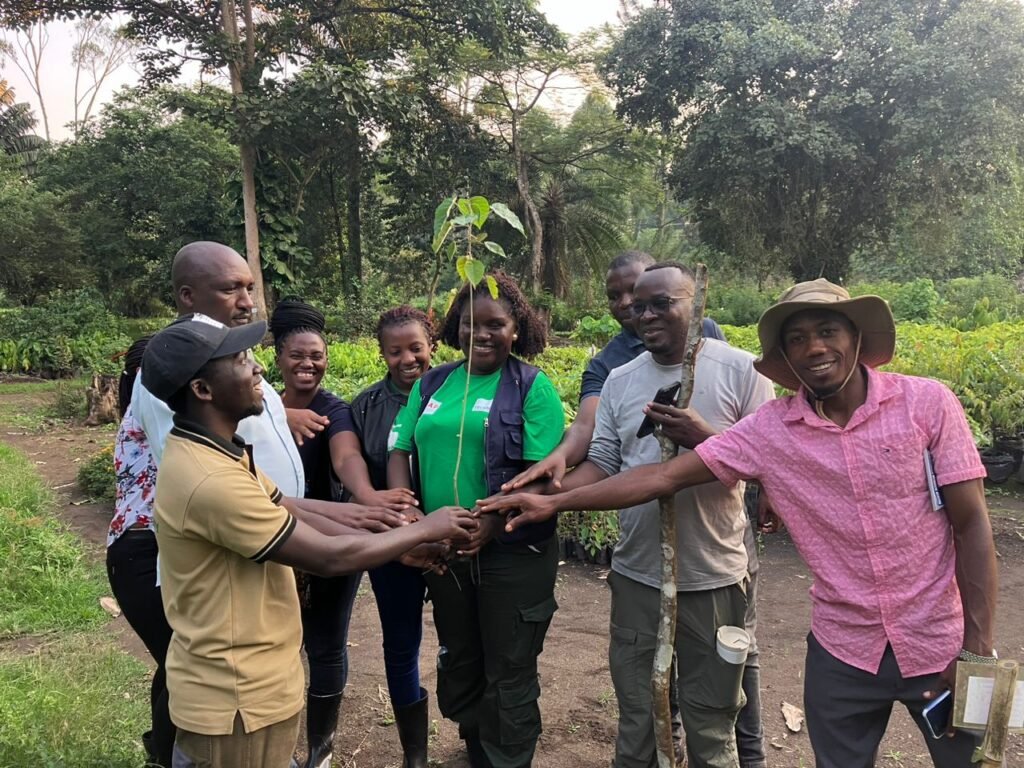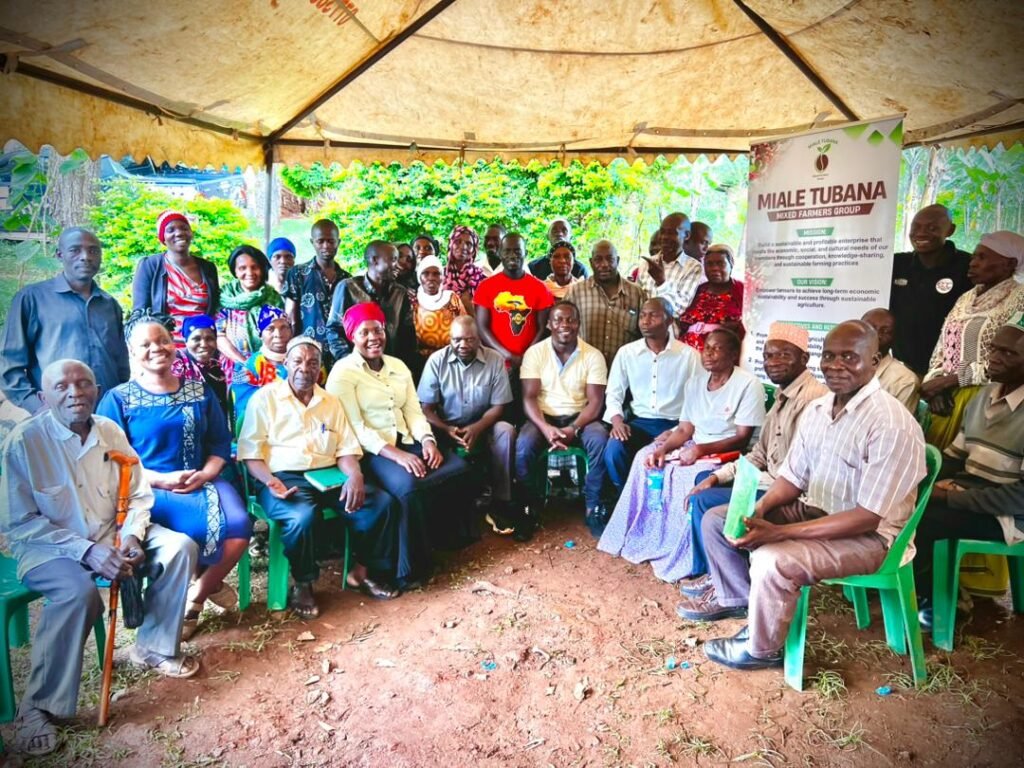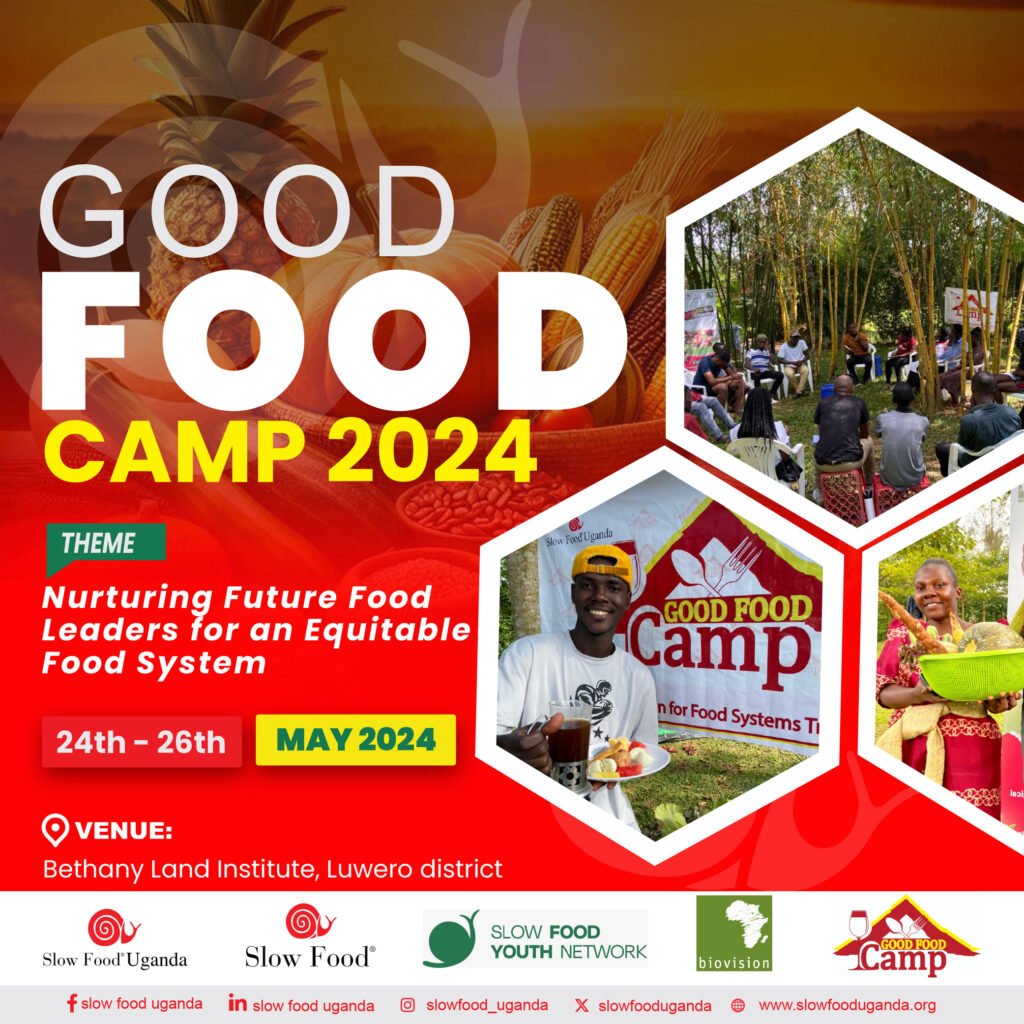A team of nine members from the Kigezi Sustainable Food System Consortium participated in the learning visit in Fort Portal City, Kabarole District from the 18th to the 21st August, 2024. The team included officials from the Kabale Municipality Development Foundation (KMDF), the Rubanda Smallholder Farmer Groups Consortium (RSC), and Slow Food Uganda (SFU). The aim of the visit was to explore and benchmark biodiversity and agroecological practices. Their ultimate goal was to implement these sustainable methods in the Kigezi region, notably in the Kabale, Rubanda, and Rukiga districts.
The agroecological learning trip was hosted by the project consultant, Mr. Rushongoka Rampiira who systematically prepared it with an emphasis on experiential learning, site visits, and interactive discussions to explore biodiversity and agroecological practices and learn sustainable land restoration strategies, as well as a grasp of how nutrition-focused activities can be integrated into farming systems. The group also planned to gain practical knowledge that may help promote sustainable food systems in the Kigezi region, thereby ensuring long-term food security and environmental sustainability.
Their journey began with team-building exercises aimed at improving collaboration and attention to detail among the participants. These exercises were critical in developing group dynamics and preparing the team for the next focused observations and conversations. They next went to a two-year-old agroforestry farm, which offered an excellent example of land restoration and sustainable farming practices. The farm featured an indigenous forest intermingled with diverse food crops, providing a hands-on learning opportunity about the advantages of agroforestry systems. The farm visit demonstrated the importance of incorporating indigenous species into farming systems, not just for food production, but also for environmental conservation.
The team visited the Tooro Botanical Gardens, where they learned more about Albertine agroforestry practices. The visit provided great insights into indigenous species production and protection, highlighting the importance of biodiversity in sustainable agriculture.
There was a visit to Kabarole Research Centre (KRC), a local NGO in Fort Portal that promotes food and nutrition security and sustainable production practices. The group learned about various sustainable farming techniques, particularly those aimed at improving soil health and increasing agricultural productivity. The practical knowledge gained at KRC was judged particularly relevant in tackling the unique challenges faced by the Kigezi region.
The group also visited the Butterfly House, which has an agroecological backyard garden. This tour was very interesting since it demonstrated the incorporation of nutrition-focused methods into small-scale farming systems. The Butterfly House garden demonstrated how backyard farming can improve food and nutrition security in the Kigezi region.
The crew held participatory talks throughout the trip, sharing observations and perspectives from each site visit. Daily reflection sessions enabled the group to assess the significance of observed practices and begin developing strategies for adaptation and implementation in the Kigezi region.
The trip concluded with a debriefing session, where participants evaluated the success of the learning experience, discussed potential problems in applying the techniques, and laid out the next steps for incorporating the newfound knowledge into their current work.
The agroecological learning tour to Fort Portal was intended to provide the Kigezi Sustainable Food System Consortium team with the tools and information needed to promote sustainable food systems in their home region. Fort Portal’s lessons will inspire and lead future initiatives in Kabale, Rubanda, and Rukiga, helping to ensure the region’s long-term food security and environmental resilience.


